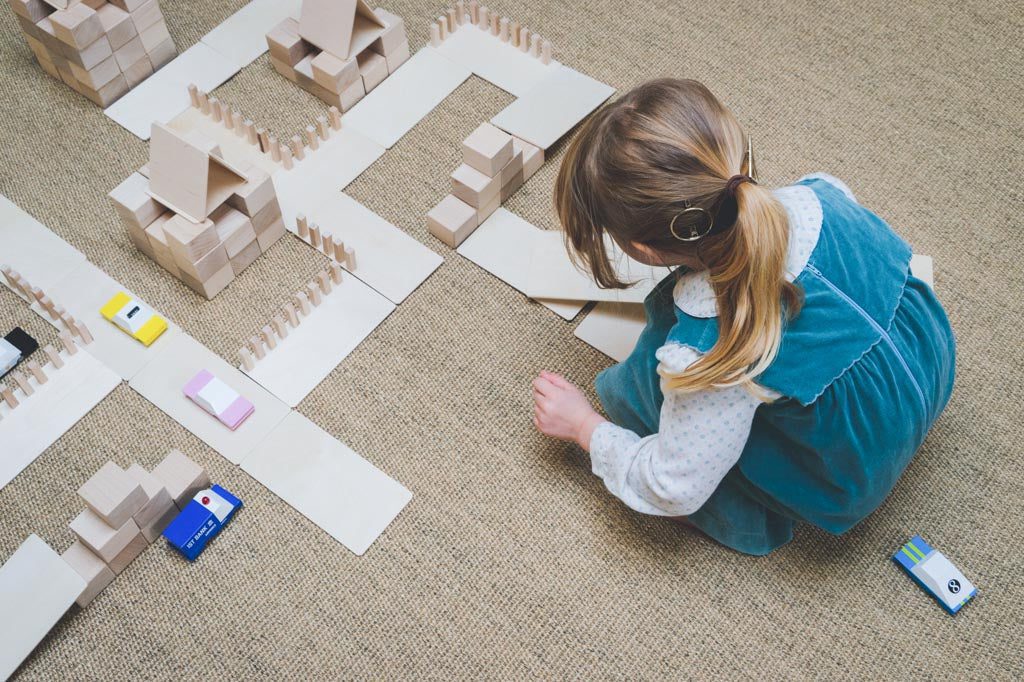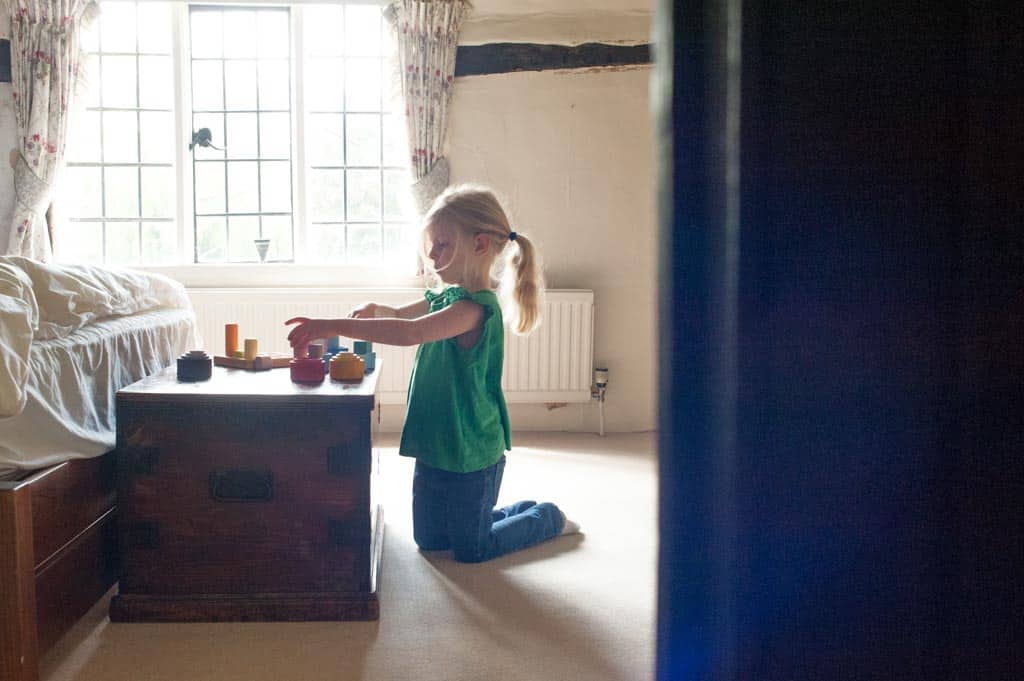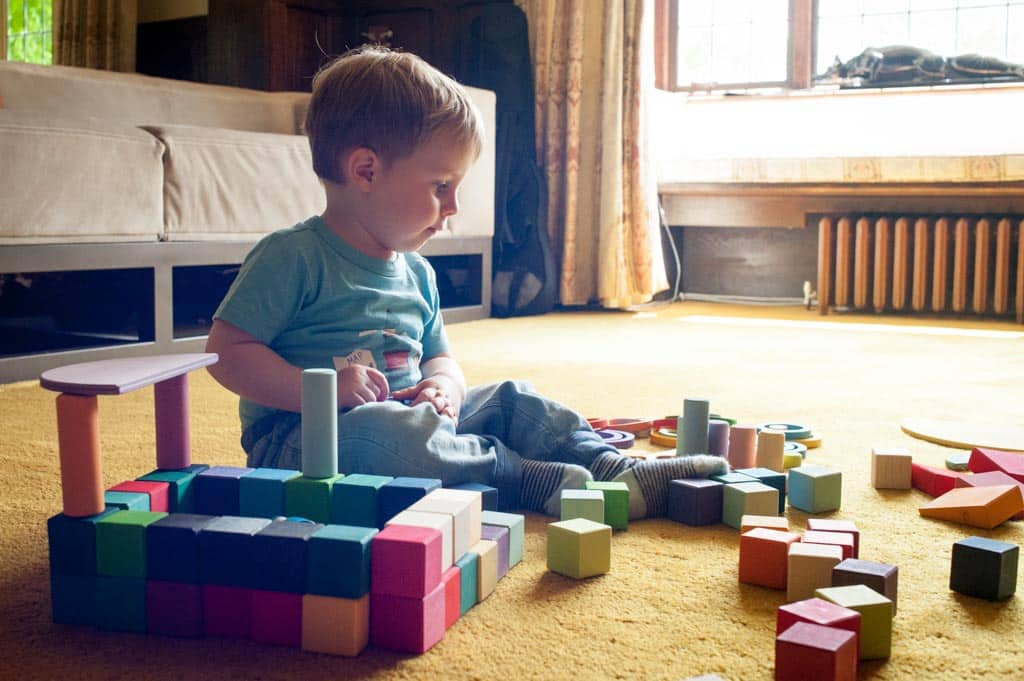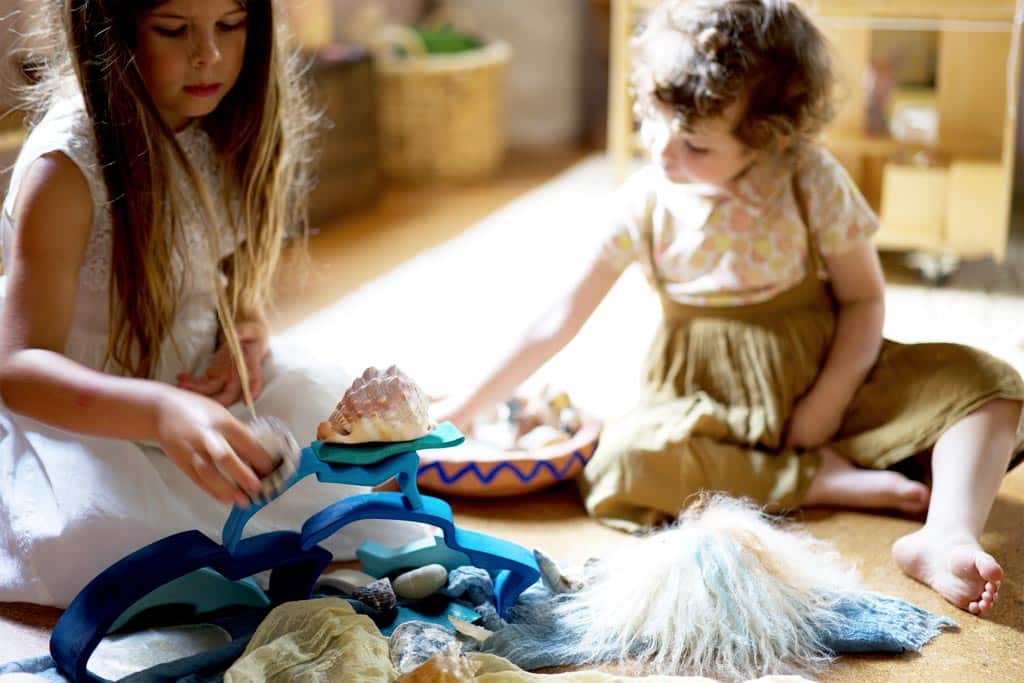When you notice your child deeply engrossed in her own world, playing on her own, you’re witnessing the magic of solitary play. Far from being an indicator of loneliness or exclusion, solitary play is a critical stage in your child’s developmental journey, filled with self-discovery, imagination, and creativity.
The six stages of play
Mildred Parten identified six stages of play, from unoccupied to co-operative. They chart children’s progression from playing alone to playing together. Read the rest of the series here:
What is solitary play?
Solitary play, as the name suggests, is when your child plays on her own, separate from other children and without any interaction. It’s an individual play where she is fully engaged in an activity, purely for her own entertainment and exploration.
While we all want our children to be sociable and make friends easily, it’s also good to be able to work independently and to be happy in your own company. Solitude is closely linked to Boredom, since without anyone else for entertainment, children must draw on their own internal resources to find something interesting to do.
Recognising solitary play
Identifying solitary play is relatively straightforward:
- Your child plays independently, even if other children are nearby.
- She seems engrossed in her activity and doesn’t seek out company or interaction.
- The play often seems imaginative, where your child creates her own scenarios and stories.
Examples of solitary play activities
Here are a few examples of solitary play activities you might observe in your child:
- Doll house play
- Building with blocks
- Banging an object on a surface
- Playing with cars or trains
- Drawing
- Exploring busy boards
- Watching bubbles rise and pop

How solitary play benefits child development
Solitary play isn’t just a child keeping herself occupied. It’s a deep dive into various developmental areas.
Cognitive development
The independent nature of solitary play helps in:
- Concentration. Playing alone often means fewer distractions, allowing your child to focus deeply on her activity.
- Problem-solving skills. Without peers to provide immediate solutions, your child will learn to navigate challenges on her own.
Emotional growth
Solitary play offers:
- Self-awareness. Playing alone provides your child the space to understand her feelings and reactions better.
- Self-confidence. Completing tasks or navigating play scenarios alone boosts her confidence and sense of accomplishment.
Creativity and imagination
Without the influence of peers, your child:
- Crafts her own narratives. In solitary play, it’s all about her stories and her imaginative worlds.
- Experiments freely. She’s more likely to try out new ways of playing or explore different uses for toys and objects.

Note that solitary play, though usually observed in toddlers, is also enjoyed by older children. The six stages of play are not a one-way street. Preschoolers will sometimes prefer to play alone or alongside others, even though they are capable of the highest, most co-operative forms of play.
Encouraging solitary play
While it’s a natural play pattern, you can still foster an environment conducive to solitary play:
- Provide diverse toys and materials. Offer a range of toys that cater to different interests, from art supplies to building blocks.
- Safe play space. Ensure she has a safe, comfortable space where she can play without too many distractions.
- Balance group activities. While group play is essential, ensure your child also gets time alone, without the pressure to always interact or share.
Solitary play isn’t just about being resourceful when you’re on your own. It’s also necessary for some types of activity. You can’t get very far with block play or building a railway track if your baby sister is constantly knocking your constructions down. In this way, it helps foster deeper thinking and all-important perseverance: solitary activities can run for hours or even days, as your child returns several times to make modifications. Make sure to keep rampaging toddlers out of the room when your child is engaged in this kind of deep play. It’s demoralising to watch as your lovingly-constructed creations are destroyed in a moment’s exuberance by a younger sibling. At some point your child will give up trying.
Final word
Though solitary play is valuable, it’s essential to ensure it’s part of a balanced play diet. If your child always prefers to play alone and avoids group play or interaction, it might be a sign she’s struggling with social situations or feeling anxious.
In essence, solitary play is a beautiful stage where your child gets to be the master of her domain, crafting worlds, stories, and experiences on her own terms. By recognising and valuing this form of play, you’re appreciating your child’s individuality and supporting her holistic development.




